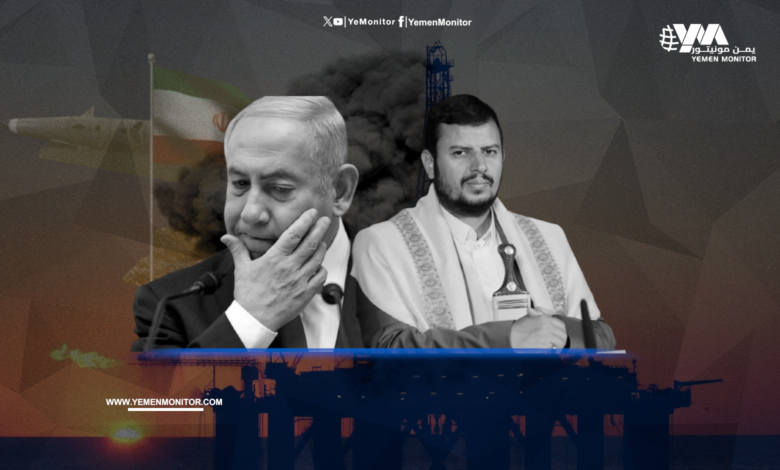What are the Chances of Israel Targeting Houthi Leaders? A Study Center Responds

Yemen Monitor / Newsroom
A Yemeni study center stated that Israel’s threats to the Houthis suggest there is a possibility of launching strikes against the group’s leaders. However, such an action depends on a number of variables, foremost among which is the course of the ground operations carried out by the occupation army in southern Lebanon and the extent to which Houthi attacks on Israel continue.
Al-Mokha Studies Center reported that “engagement with Iran may preoccupy Israel from targeting the Houthis, given its focus on more influential parties on one hand, and the marginal role played by the Houthis in this engagement on the other hand. However, it may provide justifications for attacks against the Houthis, not by Israel, but by the US and Western naval ships, as it is likely that the Houthis will attack the US vessels—instructed by Iran, perhaps even without direct orders—which would compel Washington to respond harshly, including targeting its leaders, unlike what it has avoided in the past.”
The center indicated in an assessment that an Israeli retaliatory strike against the Houthis could be acceptable to Americans, as long as it does not significantly weaken the Houthi group. This means that the current US administration may not accept an attack that would result in the death of the group’s leader, but it might overlook any strike directed at other Houthi military or political leaders, as this would be considered Israeli retaliation, given the constraints the US faces in its efforts to achieve a political settlement in the country.
The center noted the difficulty of establishing a target bank, explaining that it might not be feasible for Israel to conduct successful military operations against the Houthis. It would be challenging for Israel to obtain a significant target bank due to several considerations, including geographical distance: Yemen is not close to Israel like Gaza and southern Lebanon, with more than 2,000 kilometers separating them. Additionally, the nature of the geography: except for the Tihamah plain, the territory controlled by the Houthis is characterized by highlands, valleys, and canyons, making it easier to conceal missile and aircraft launch platforms and radars. The surveillance process would be costly, and drones tasked with monitoring would be vulnerable to targeting and could be shot down.
Furthermore, the military composition of the Houthis resembles a militia more than a regular army, operating in small groups. The Houthi leaders, who emerged amid varying forms of warfare, have a heightened sense of security.
The center explained that seven years of bombardment have left little in terms of targets to destroy. Military camps and many military establishments have endured heavy bombardment for nearly seven years, alongside strikes carried out by the US and Britain, which could substitute for direct Israeli bombardment.
The center concluded that, in light of the aforementioned factors, the possibility of Israel launching retaliatory strikes against the Houthis would be at its lowest if a relative recovery of Hezbollah occurs and Israel becomes immersed in a war of attrition in southern Lebanon, in addition to the ongoing war in Gaza. This would depend on serious escalation from Iran and its engagement in reciprocal strikes with Israel, while Houthi attacks decrease and the potential damage they could cause remains limited.
Opportunities for operations that Israel might undertake against the Houthis would increase, according to the center’s assessment, if Israel achieves military success against Hezbollah, in light of reduced possibilities for direct military engagement with Iran, or in case of a wide-ranging confrontation in the region that sees US naval vessels suffer damage from Houthi attacks.
The center concluded that if strikes do occur, they would remain confined to economic interests that generate media coverage, similar to the two previous attacks on the city of Hodeidah. This could extend to attempts to assassinate first or second-tier Houthi military or political leaders, potentially even an attempt to assassinate the group’s leader, especially if Israeli interests are severely harmed as a result of Houthi attacks.




